- Home
- Anne McCaffrey
The Coelura Page 3
The Coelura Read online
Page 3
Caissa was seized suddenly with an anguish so cruel and a rage so deep that she nearly burst into tears. Baythan had sounded so positive of success. If he knew of coelura, how could he put such joyous creatures in jeopardy to the fashion-hunger of the galaxy?
Coelura trilled her a reassurance which eased that stabbing, unfilial accusation. They swirled ecstatically about the man they had clothed in splendor. In splendor, and more, for now he was close enough for her to distinguish that other difference about him. Crippled he might be, walking slowly to disguise a halting stride, but in his face, handsome in feature, was a serenity, a self-awareness that she had never before observed in any of her acquaintance.
Some heretofore unexperienced compulsion caused her to extend her arms forward, palms up, in respectful greeting. She smiled, a smile as warm and genuine as his, totally unprompted by propriety or protocol.
“You survived that dreadful crash!” she said, wondering how anyone in his present state could be as happy as he.
“Barely,” he replied, indicating by a slight nod of his head the damaged side of his body.
“Your signal was so very faint that I despaired of finding anyone alive.”
“The signal, my lady, has been on for so long I had despaired of its being heard at all.”
He clasped her hands as equal to equal as naturally as if they had met under formal conditions. The faintest squeeze of his-strong left hand emphasized the irony of his words.
“You didn’t expect to be rescued at all?” Inadvertently her eyes went to his throat which the highnecked gown covered.
“I am now found.”
Her ear caught the note in his voice that augured ill for those who had not searched until they found him. Or perhaps he was not, as she had assumed by his manner, a body-heir.
“I have been considering the construction of a boat to take me back to the mainland. My absence might precipitate matters. Would your vehicle possibly carry two?”
“Of course . . . but not now.”
“Oh?”
Caissa cleared her throat, aware of his amusement at her hesitation.
“I neglected to check my fuel tanks before leaving Blue City . . .” and, when he smiled kindly at such a lapse, she went on purposefully. “My own fault but I had not intended to come so far and then heard your distress signal.”
“How far will the remainder of your fuel take you?” His expression became concerned and the flowing blue-green of his robe turned grey.
“By tomorrow, when the solar batteries have charged, I can transport you anywhere you wish.”
“Even to interdicted territory?”
“Rescue missions are exempt.”
His smile deepened and his robe brightened, too.
“And how do you explain your overnight absence to the Blue City Guardians?”
“With any plausible story I care to concoct on my way back,” she replied with a shrug and a smile to belie a callous indifference to truth and authority. “Do not worry on my account. I am only pleased to restore you.” She faltered then, feeling a blush suffuse her face as if she were an undisciplined adolescent for she was not conducting his rescue in a proper way. “I brought my medical kit,” she added, reaching for it.
“I’m long past the need, dear lady. The coelura eased my pain as they also sheltered and provided for me.”
Anguish again stabbed Caissa. “Then they are coelura!”
“They are indeed!” The quality of his voice cooled and, though his face remained serene, she felt him grow stern and his gown rippled darker.
“I’ve only heard of coelura once,” she said, swallowing.
“Once is usually enough.” His sternness was disconcerting.
“What I heard did not lead me to suspect their existence or . . .” and she glanced above her at the glorious spinning coelura who were murmuring lightly, but without alarm.
“What did you hear?” The man was polite if adamant.
Seized by a sudden whim, she replied, mimicking the voice of a computer. “ ‘Coelura, a passive ovoid aerial life form once indigenous to the northeastern Oriolis island group.’ That was all.”
“And ‘Oriolis’?” the man prompted.
“ ‘Oriolii have been interdicted by the Triadic cities and no intercourse is permitted.’ ”
“Yet you deviated from your course to answer a survivor signal in an interdicted area?”
“A survivor signal is not to be ignored from whatever source,” she replied with mock reproval.
The man laughed, an easy, hearty sound, unlike the artificial and socially acceptable snickers of her society.
Suddenly the coelura massed together, uttering a trill that was a warning despite its melodiousness.
“Come, we must hurry,” said the man. “The sun is setting. While the coelura are abroad, we are safe. Once the sun is set, they rest and nocturnal amphibians prowl this beach. I have a shelter, rude but sufficient, a short . . . hop . . . from here.”
“But there are reasons why . . .” Caissa began, thinking unfilial thoughts about her sire’s possible involvement in this man’s accident. She was torn between a desire to detach herself completely and a deeper, burgeoning fear for the fate of the coelura if her sire’s stratagems were successful.
“There are more urgent reasons why you will obey me,” said the man, pointing towards the undulating shapes that were speeding across the lagoon towards the shore. “The prinas are wasting no time. They have our scent.”
Caissa required no further admonition as he took her hand and pulled her towards the thick vegetation just beyond the beach. Prinas were as fast on land as they were in the water.
“The coelura will mask our spoor. But we must hurry.”
“I thought coelura were passive,” she said, deftly pushing back the thick growth at her host’s right side. Coelura swirled behind them, their collective voice now almost menacing.
“You mustn’t believe everything you see displayed, my lady Coelura are generally the most obliging creatures in the world but they also recognize danger.”
Then they had reached his shelter, built against the base of the basaltic palisade. The sloping roof was only apparent because the flight of coelura settled on its outline. Caissa couldn’t imagine what had been used in its construction.
The man stepped to an apparently seamless wall and pulled open a doorway. She quickly entered and, as he followed her, the entrance sealed itself.
“I would scarcely call this shelter rude,” Caissa said, staring about her appreciatively.
The single unexpectedly large room was decorated, if not furnished, in patterns that glowed of themselves. The rock of the back wall was covered with shimmering strands. Natural stone formations had been transformed into a long couch. Other rock extrusions served as shelving for bowls of fruit, a leaf-covered plate and gourds.
“This is a beautiful place.”
“And you naturally have been taught to appreciate beauty?”
She gave him a sharp look for the odd flatness in his voice.
“I have been so trained but . . .” and she gestured about her as the patterns of the very fabric of the room seemed to shift and flow subtly, “but this transcends that over-used word.”
“Rude or beauty?”
“You are rude,” she replied stiffly, “who are clothed in beauty.”
He smiled then, as if he had been testing her, and his smile reached blue eyes accentuated by the greeny-blue of his gown.
“My apologies. I have been long away from graciousness.”
“Living here?”
“Living alone. And here.”
The care in which he phrased that qualification did not escape her even if she did not comprehend the distinction.
“May I offer you juice, or water?” He was the easy, courteous host after that curious exchange. “While the coelura supply my needs, the fare is primitive.” He gestured with his uninjured arm for her to seat herself on the long couch.
&nbs
p; On the horns of her private dilemma, Caissa hesitated. To offer hospitality signified her host’s good intentions: for her to accept bound her as well. If her suspicion about Baythan’s ambition was correct, she might be in danger of violating that mutual trust.
“Not the sort of fare to which you are accustomed . . .” and his gaze turned mocking as his garb altered color.
“It’s not that, truly.” Suddenly Caissa wanted this man’s good opinion more than she wished to violate the ethics of hospitality. “I often eat from the land when I hunt.” To cover her confusion, she reached to a thigh pocket and withdrew the emergency rations. “I have these to contribute to our meal. Perhaps a change to your diet.” She held the package tactfully towards his left hand.
Once more he laughed in his spontaneous and infectious manner and took her offering.
“I have lived alone too long, my lady.” He moved towards the shelves, taking down the fruit bowl and placing it on the center of the couch. “Make yourself comfortable. That protective coverall is no longer necessary and it must be hot.”
Caissa was finding it so and, as the man unwrapped the rations and soaked the dehydrated portions in a small bowl she took off the coverall and seated herself on the couch.
Having expected stone, she found the surface comfortably yielding. Curious, she touched the fabric covering. It was remarkably soft yet firm, and she found herself stroking it as if it were the pelt of some creature domesticated for tactility.
“Is this also coelura spun?” she asked.
She sensed his sudden wariness and then noticed that his eyes were on her throat and the body-heir tattoo.
“Ah, I had expected as much,” he said, unaccountably relaxing. “Your bearing is unmistakable.”
Offended, she started to rise but he gave her a broad mischievous grin and thrust a plate at her.
“You’re not what I would have expected for one of your status. Here, these are bark peelings which the coelura collect for me. Exceedingly nutritious for one who has had a trying day.” His eyes were kind and his manner so conciliatory she could not remain resentful.
He positioned the rest of their meal beside the fruit and gestured elegantly with his left hand for her to be seated again.
“My name is Murell my lady”
“Mine is Caissa.”
They smiled at each other for the belatedness of that formality as they sat down.
“And yes, my lady Caissa, this is coelura spun and the shelter is coelura fabricated. They sometimes use extraneous materials in their constructions. There was a time,” and his face lost its mobility, “when men and women paid enormous fortunes to Demeathorn for coelura spins. One sufficed for the lifetime of even the most devotedly fashionable.”
Caissa bent her head as if to select food but she could not look at Murell thinking as she was of the studied elegance of her mother’s extensive, ever-changing wardrobe
“Each coelura,” Murell went on, unaware of her internal conflict, “has only so much thread in its life span. They are willing creatures, eager to please those they like. Unfortunately, they are pliant and amiable to almost anyone. . . .”
“They don’t like prinas. . . .”
“Prinas are natural predators, indigenous to this planet.” Murell spoke in a wry tone and Caissa, dressed for hunting, knew all too well that man was the most insatiable predator of the galaxy.
“Coelura must reserve some thread with which to construct its mating net, a net which was considered by the connoisseur to be more valuable than ordinary thread.”
Caissa saw the color of his gown turning granitic and as cold as the tone of his voice. She dared not look at him, suppressing her own roiling anxieties, inexplicably convinced that he, or his coelura spun gown, would sense her increasing fear. A fear that had more to do with the continued protection of coelura from her sire’s plans than betraying their presence to anyone.
“The Oriolis left the Triad to prevent coelura extinction?” she asked in the composed tone that only years of training could produce under this evening’s circumstances.
“I have offered you hospitality, Caissa.” Murell’s voice was unaccountably gentle as if he knew the direction her thoughts were taking.
“And I have accepted.” Despite all her discipline, Caissa could not suppress the anguish she experienced at her invidious situation. Suddenly the fabric under her began to wrap itself about her legs but the ripple was reassuring, not aggressive. She stared down at the phenomenon of affectionate fabric.
“Stop that,” said Murell in an authoritative voice.
Startled, she looked up at him but he was staring at the couch. His command was directed at the covering. The material resumed its former quiescence. Then Murell’s eyes met hers.
“You are a body-heir, Caissa. We have shared hospitality. You have come to my rescue.” His quiet words reminded her of duty and tradition, of unwritten laws of conduct and exchange of life-debts.
“Coelura is at risk right now.” She tried to formulate a warning that would not violate her filial obligation.
“Coelura has been at risk and no longer is.” Murell stated this, so quietly vehement that she was bereft of all politic phrases. He touched her hand gently. “Once you have put me back on the mainland, all will be well. Not to mince words, your fortuitous arrival will seal coelura’s protection.”
Whatever she might have been tempted to say in as direct speech as he had used was drowned by a savage shrieking howl. The fabric of the shelter’s outer wall was dinted inward by a large body. Caissa was on her feet in an instant, reaching for the weapons hanging from her discarded coverall.
“Don’t worry,” Murell said, smiling at her alert reaction. “The amphibian cannot pierce coelura-built walls.”
The creature attacked again and Caissa positioned herself before Murell knowing that his injuries made movement awkward.
“I really do appreciate your effort, my dear Caissa,” and Murell sounded oddly amused, “but weapons are unnecessary.” He emitted a piercing whistle.
The creature outside snarled, more in pain than in anticipation. Murell repeated his whistle in a different and complex sequence. The sound was taken up all around them, the outer walls turning a brilliant purply-red as if emanating heat, though Caissa felt no increase in the temperature of the room. The attacker’s shrieks turned to agonized whines and its noise dwindled as it put distance between itself and the source of its discomfort.
“Stop that,” Murell said, once more in that authoritative voice.
Caissa swung back to him, immeasurably offended, and then saw that he was once again addressing whimsical coelura. The full skirts of his robe, now a purplish blue, had managed to wrap around her leg and tugged her gently towards Murell.
She caught his eyes and he gave her an embarrassed smile, snatching the fondling fold from her.
Caissa giggled. Her hands, which had tensed into flat defensive positions, went to her lips in a gesture reminiscent of her childhood. But the stresses of the last hour needed release and she had never been given to tears. At the sound of her irrepressible mirth, Murell, too, relaxed, his rich chuckle breaking into full laughter as dignity was forgotten.
Afterwards, Caissa supposed that she had clung to Murell as the excess of amusement overtook them. Somehow, his injured arm was not awkward as he held her to him, nor did she object in any way to being in his arms. He was exactly the right height for her. She laid her head gratefully against his shoulder, which needed no padding. She felt his cheek resting easily against her head as the embrace was extended long past the need of mutual support.
This time, as the robe enveloped her, Murell did not protest. Then, in an abrupt motion, he released her, stepping back, the fabric in danger of being torn by his energetic retreat.
“My apologies, Caissa,” he said stiffly
“No apologies are needed.” She held herself proudly, hurt by his sudden rejection. But the hem of his gown reached towards her.
“
Caissa,” and he seemed to be arguing against himself to judge by the action and the conflict of color in his robe, “whatever attraction you might have just felt for me, might be emotionally experiencing, is caused by proximity to coelura attuned to my needs. . . .” He broke off, his face and robe flushing with embarrassment.
“Well, coelura, and presumably you, have succeeded! You have made an honorable disclosure of intent. I am not averse to it. Now do something!”
“Not in this treacherous robe,” he cried and ducked from under its folds, though how he accomplished such a maneuver, she didn’t then understand. By the time his hands were removing her garments, the light in the shelter was dimming. She did see the narrow tattooed bands on his neck as she willingly sank to the delicious abandon of the waiting coelura couch.
Sunlight suffused the shelter when Caissa awoke languidly the next day. Coelura trilled a reassurance as she sat up and the covering lapped itself caressingly about her. Murell was nowhere in sight, though the entrance stood wide open.
She dressed quickly, despite the initial problem of disengaging herself from the bedcover. She must leave! She must take Murell to the mainland. Then she must speed back to Blue Triad City, compose her confused thoughts and frustrated hopes, far away from the insidious and seductive atmosphere of coelura . . . and sadly, from Murell whom she must also forget. No, she doubted that she would everforget this brief alliance. It would serve as a standard against which to measure some other man. If such as Murell could be found, for he had been man enough for her!
Profoundly she regretted the pressures that must separate them so quickly. She regretted the diverse circumstances that would prevent any future encounter.
She had just scooped the coverall from the floor when shadows crossed the doorway. Coelura trilled and their joy made her smile poignantly. Murell stood in the entrance, his grey-blue coelura now fitting tightly against his body. She knew before he spoke that he had been checking her speedster.

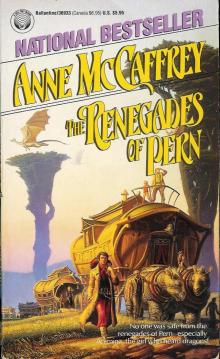 The Renegades of Pern (dragon riders of pern)
The Renegades of Pern (dragon riders of pern)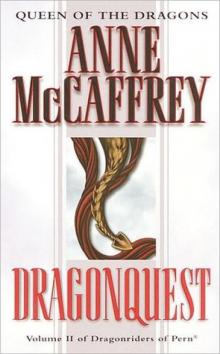 Dragonquest
Dragonquest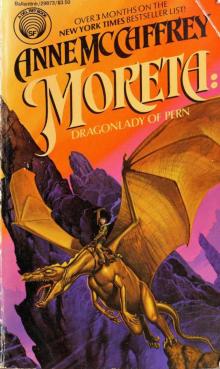 Moreta (Dragonlady of Pern)
Moreta (Dragonlady of Pern)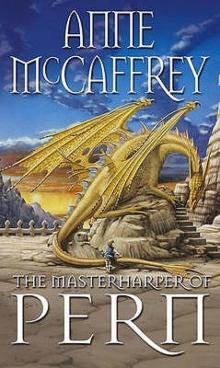 The Masterharper of Pern
The Masterharper of Pern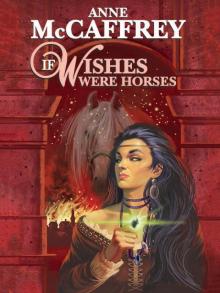 If Wishes Were Horses
If Wishes Were Horses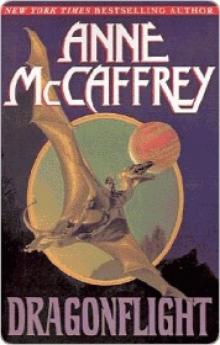 Dragonflight
Dragonflight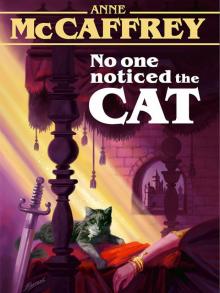 No One Noticed the Cat
No One Noticed the Cat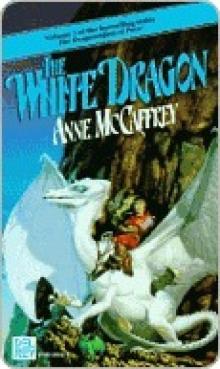 The White Dragon
The White Dragon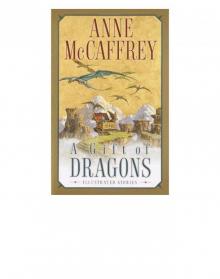 A Gift of Dragons
A Gift of Dragons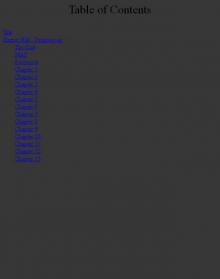 Harper Hall - Dragonsong
Harper Hall - Dragonsong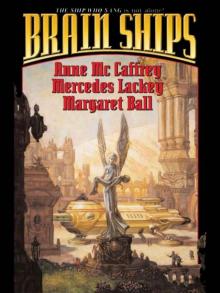 Brain Ships
Brain Ships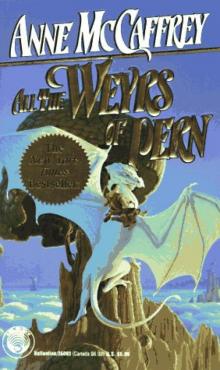 All The Weyrs of Pern
All The Weyrs of Pern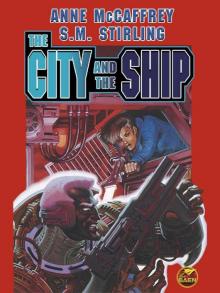 The City and the Ship
The City and the Ship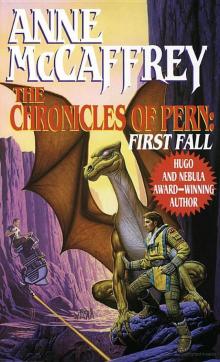 The Chronicles of Pern: First Fall
The Chronicles of Pern: First Fall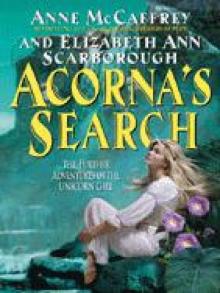 Acorna’s Search
Acorna’s Search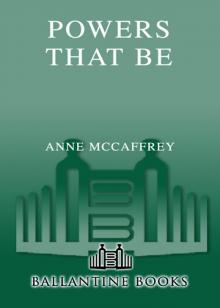 Powers That Be
Powers That Be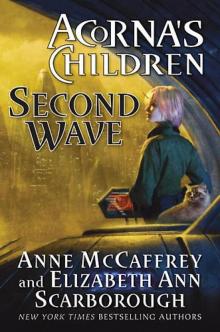 Second Wave
Second Wave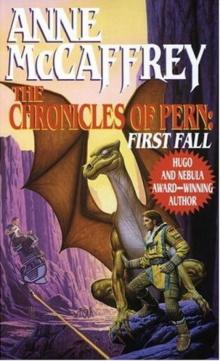 Chronicles of Pern (First Fall)
Chronicles of Pern (First Fall)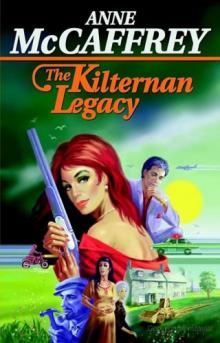 The Kilternan Legacy
The Kilternan Legacy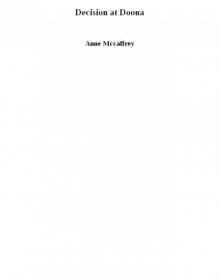 Decision at Doona
Decision at Doona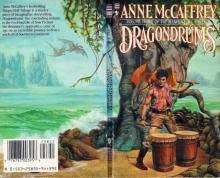 Dragondrums (dragon riders of pern)
Dragondrums (dragon riders of pern)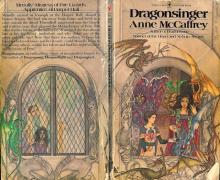 Dragonsinger (dragon riders of pern)
Dragonsinger (dragon riders of pern)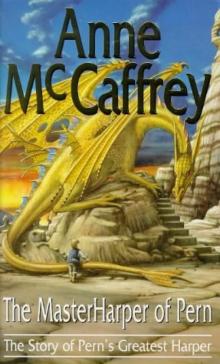 The Master Harper of Pern
The Master Harper of Pern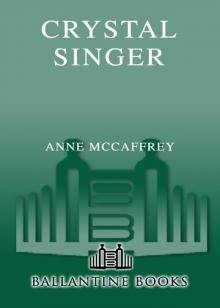 Crystal Singer
Crystal Singer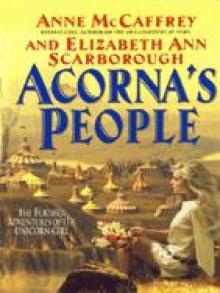 Acorna’s People
Acorna’s People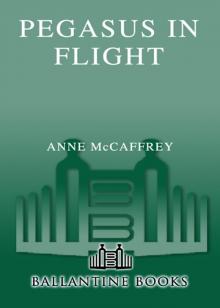 Pegasus in Flight
Pegasus in Flight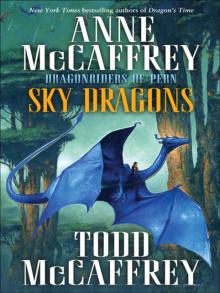 Sky Dragons Dragonriders of Pern
Sky Dragons Dragonriders of Pern Dragonriders of Pern 4 - Dragonsinger
Dragonriders of Pern 4 - Dragonsinger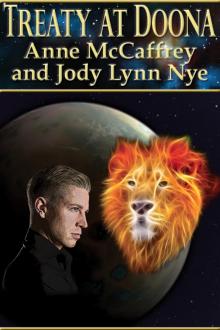 Treaty at Doona
Treaty at Doona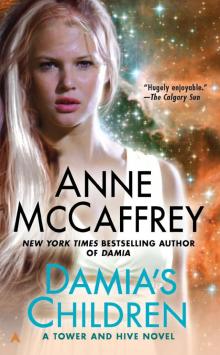 Damia's Children
Damia's Children Stitch In Snow
Stitch In Snow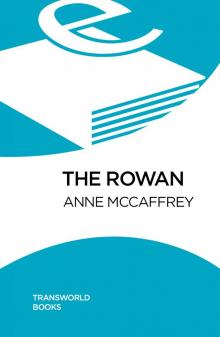 The Rowan
The Rowan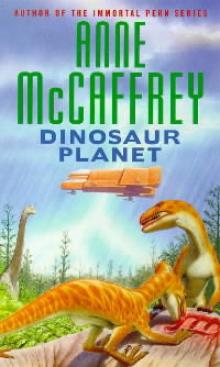 Dinosaur Planet
Dinosaur Planet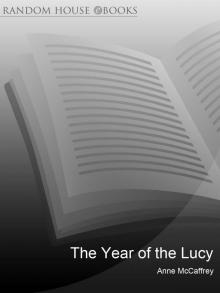 The Year of the Lucy
The Year of the Lucy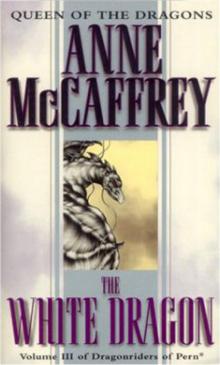 The White Dragon p-4
The White Dragon p-4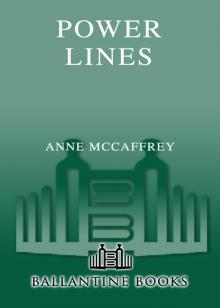 Power Lines
Power Lines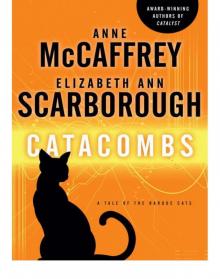 Catacombs
Catacombs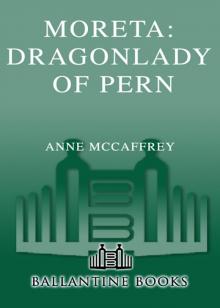 Moreta
Moreta Dragonsinger
Dragonsinger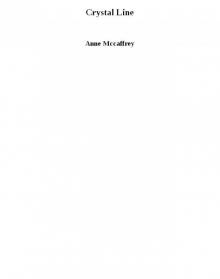 Crystal Line
Crystal Line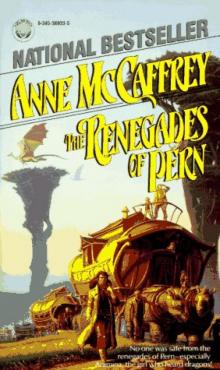 The Renegades of Pern
The Renegades of Pern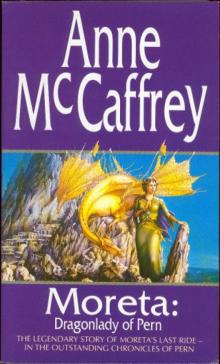 Moreta - Dragonlady of Pern p-8
Moreta - Dragonlady of Pern p-8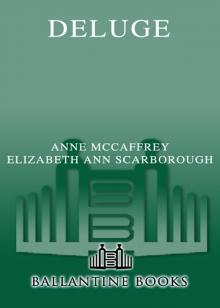 Deluge
Deluge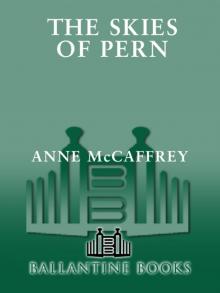 The Skies of Pern
The Skies of Pern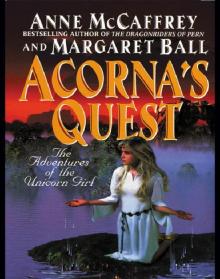 Acorna's Quest
Acorna's Quest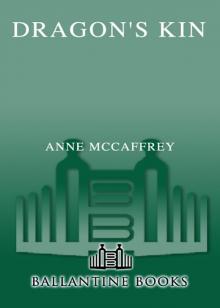 Dragon's Kin
Dragon's Kin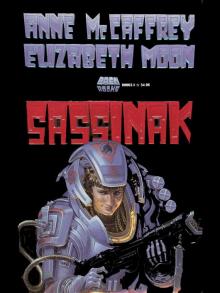 Sassinak
Sassinak![Crystal Universe - [Crystal Singer 03] - Crystal Line Read online](http://i1.bookreadfree.com/i1/03/31/crystal_universe_-_crystal_singer_03_-_crystal_line_preview.jpg) Crystal Universe - [Crystal Singer 03] - Crystal Line
Crystal Universe - [Crystal Singer 03] - Crystal Line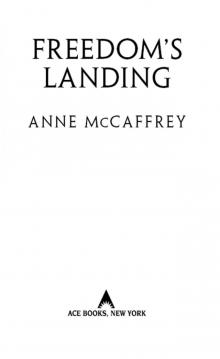 Freedom's Landing
Freedom's Landing Acorna’s Quest
Acorna’s Quest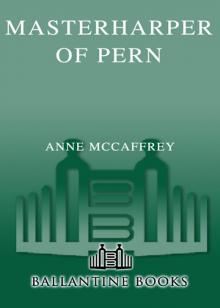 Masterharper of Pern
Masterharper of Pern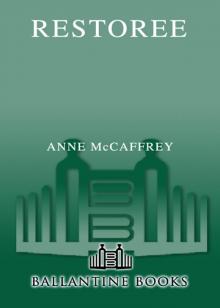 Restoree
Restoree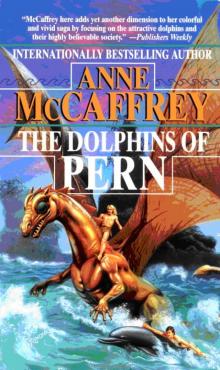 Dolphins of Pern
Dolphins of Pern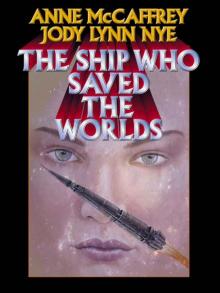 The Ship Who Saved the Worlds
The Ship Who Saved the Worlds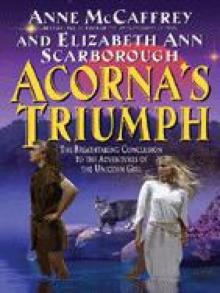 Acorna's Triumph
Acorna's Triumph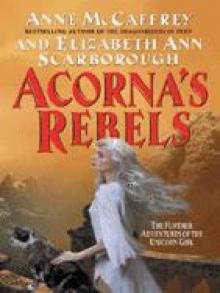 Acorna's Rebels
Acorna's Rebels![[Acorna 08] - First Warning: Acorna's Children (with Elizabeth Ann Scarborough) Read online](http://i1.bookreadfree.com/i1/04/06/acorna_08_-_first_warning_acornas_children_with_elizabeth_ann_scarborough_preview.jpg) [Acorna 08] - First Warning: Acorna's Children (with Elizabeth Ann Scarborough)
[Acorna 08] - First Warning: Acorna's Children (with Elizabeth Ann Scarborough)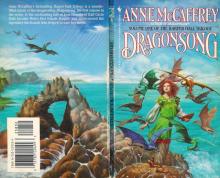 Dragonsong (dragon riders of pern)
Dragonsong (dragon riders of pern)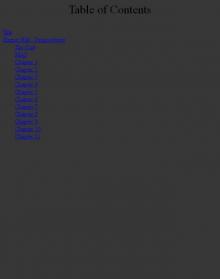 Dragonriders of Pern 6 - Dragondrums
Dragonriders of Pern 6 - Dragondrums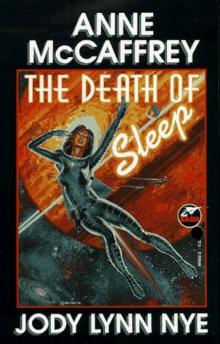 The Death of Sleep
The Death of Sleep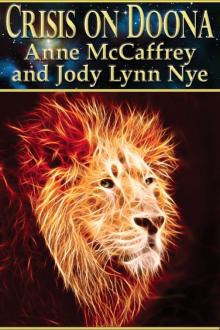 Crisis On Doona
Crisis On Doona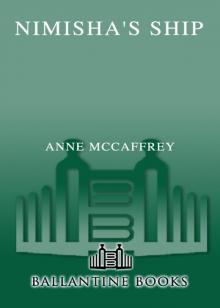 Nimisha's Ship
Nimisha's Ship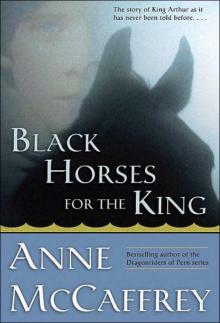 Black Horses for the King
Black Horses for the King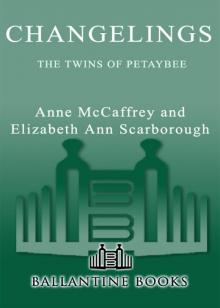 Changelings
Changelings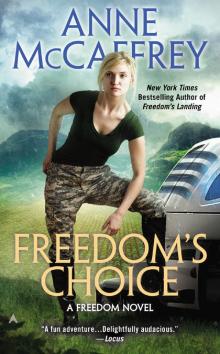 Freedom's Choice
Freedom's Choice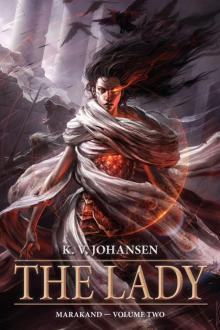 The Lady
The Lady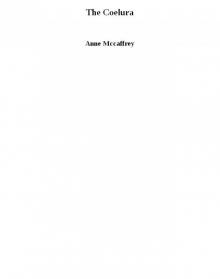 The Coelura
The Coelura Catalyst
Catalyst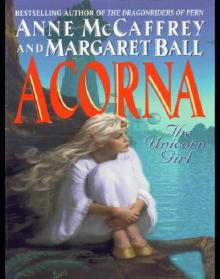 The Unicorn Girl
The Unicorn Girl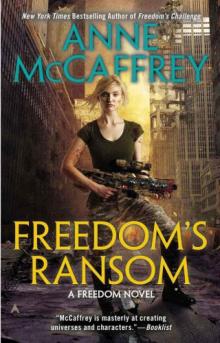 Freedom's Ransom
Freedom's Ransom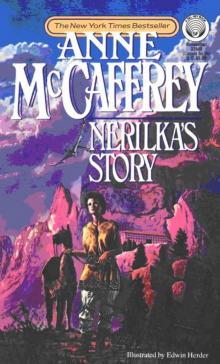 Nerilka's Story
Nerilka's Story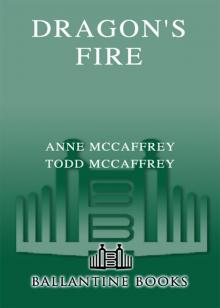 Dragon's Fire
Dragon's Fire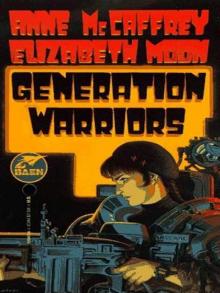 Generation Warriors
Generation Warriors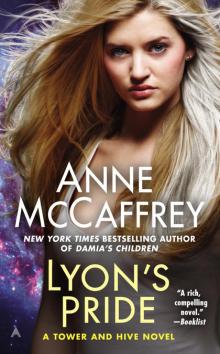 Lyon's Pride
Lyon's Pride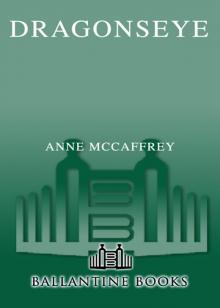 Dragonseye
Dragonseye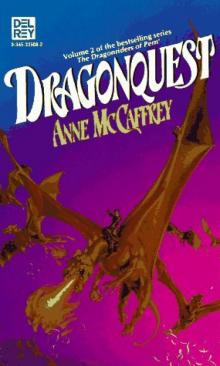 Dragon Quest
Dragon Quest Dragondrums
Dragondrums Dragonsong
Dragonsong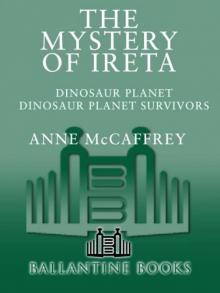 The Mystery of Ireta
The Mystery of Ireta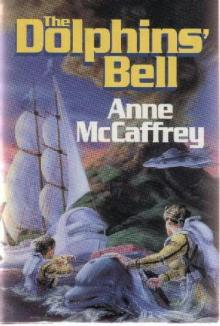 Dolphins' Bell
Dolphins' Bell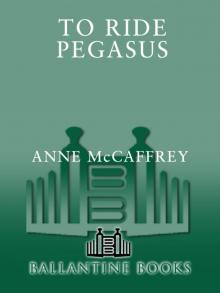 To Ride Pegasus
To Ride Pegasus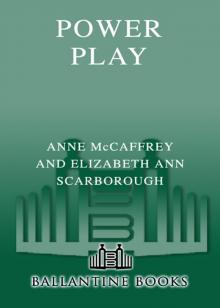 Power Play
Power Play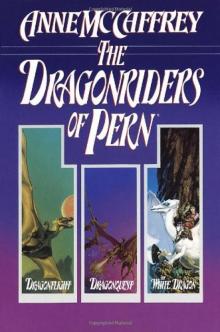 The Dragonriders of Pern
The Dragonriders of Pern An Exchange of Gifts
An Exchange of Gifts The Ship Who Sang
The Ship Who Sang Sky Dragons: Dragonriders of Pern
Sky Dragons: Dragonriders of Pern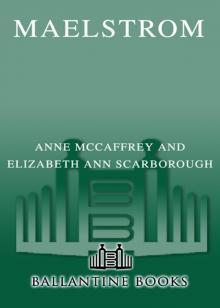 Maelstrom
Maelstrom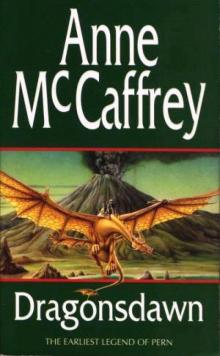 Dragons Dawn
Dragons Dawn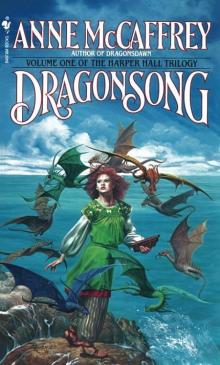 Dragon Song
Dragon Song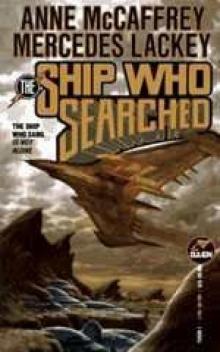 The Ship Who Searched b-3
The Ship Who Searched b-3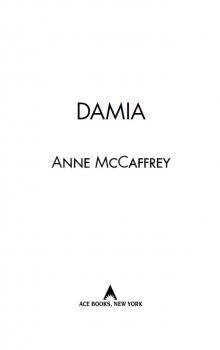 Damia
Damia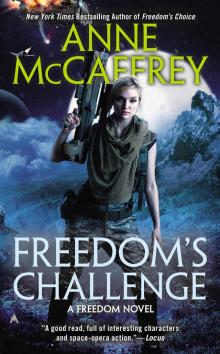 Freedom's Challenge
Freedom's Challenge